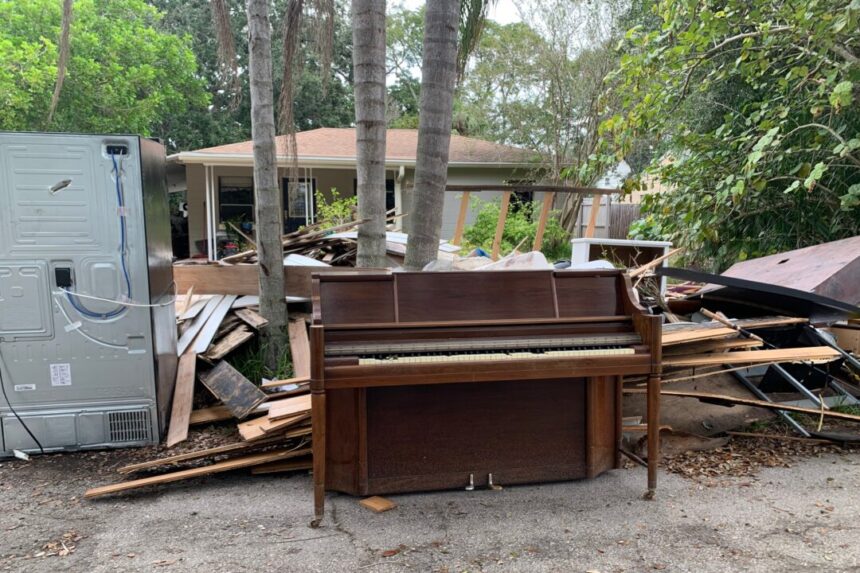TAMPA, Fla.—The city of St. Petersburg, Florida, has successfully gathered over 2 million cubic yards of storm-related vegetative, construction, and demolition debris. Meanwhile, in Tampa, debris removal operations following Hurricanes Helene and Milton were wrapped up on Dec. 20 as recovery efforts persisted throughout the Bay area.
Tampa’s city officials set a deadline for assessing and approving all reported storm debris by December 20, 2024, to maintain eligibility for FEMA reimbursement. By that date, the city had collected 1.3 million cubic yards of debris within its limits, with most rounds completed by early December.
Mayor Jane Castor of Tampa expressed her gratitude to the hardworking Solid Waste team and contractors for staying ahead of schedule in debris collection, ensuring the final pass would be completed just in time for Christmas.
On the other side of the bay, St. Petersburg announced the closure of its temporary debris sites a few days later. The city informed residents that the Temporary Debris Management Site would cease operations on December 22, allowing residents to drop off storm-related debris free of charge until then.
St. Petersburg outpaced Tampa’s debris collection efforts by nearly doubling the amount, accumulating 2.06 million cubic yards of debris primarily from the “muck and gut” process of cleaning out homes post-Helene’s unprecedented storm surge.
Clearwater also concluded its debris removal activities, initiating a final pass to collect construction and demolition debris on the barrier islands by December 11.
President Joe Biden’s approval of 100 percent reimbursement for debris removal projects in Florida following Hurricane Milton on October 12 prompted Governor Ron DeSantis to urge local governments to take advantage of the opportunity. DeSantis and Kevin Guthrie, executive director of Florida’s Division of Emergency Management, waived all relevant statutes related to debris removal to expedite the process.
Could you please rewrite this sentence?
Source link






